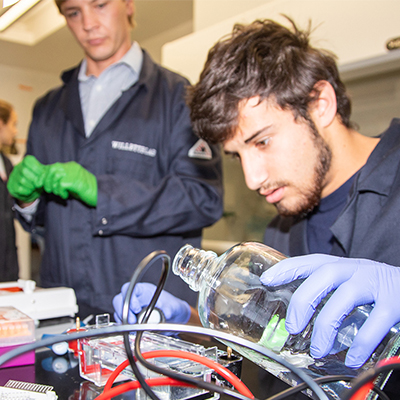
Junior biology major, Leonardo Gonzalez-Smith is looking back 300 years ago to find if evolution of a rare freshwater sardine happened faster than ever before recorded.
Gonzalez-Smith is working to figure out if this rare sardine found in the Philippines’ Taal Lake, a volcanic lake formed around 300 years ago, is connected with another sardine species that lives in a different environment but may have split from one another due to a volcanic eruption that separated the two types of sardines. If true, may prove that evolution can occur at a faster scale than previously accepted.
“Becoming familiar with the world of bioinformatics, which was once foreign to me, is an incredibly useful skillset that not many undergraduate biology majors can say they have attained,” said Gonzalez-Smith.
Gonzalez-Smith spent six weeks this summer involved in the Seaver College Summer Opportunities for Advanced Research (SOAR) program working on this project called, “Investigating Faster Rates of Fish Speciation within Volcanic Taal Lake of the Philippines Using RAD-Sequencing Genotyping of Local Sardinella Populations” with his faculty mentor, Demian Willette, professor of biology.
“During this research project, my relationship with Dr. Willette has grown immensely. Under his guidance, I have learned so much from basic lab techniques to becoming a more independent researcher,” said Gonzalez-Smith. “Dr. Willette’s unwavering enthusiasm for his students has inspired me to explore a future path into the realm of teaching and has encouraged me to apply to grad school following my years here at LMU.”
SOAR engaged Gonzalez-Smith into refining research methods and experiments and taught him more self-discipline tactics.
“I have learned to become a more independent individual when it comes to research,” said Gonzalez-Smith. “SOAR has taught me that there are so many resources online…gaining the skill to find the answers on my own has been a tremendous growth in the way I function in and out of the lab.”



